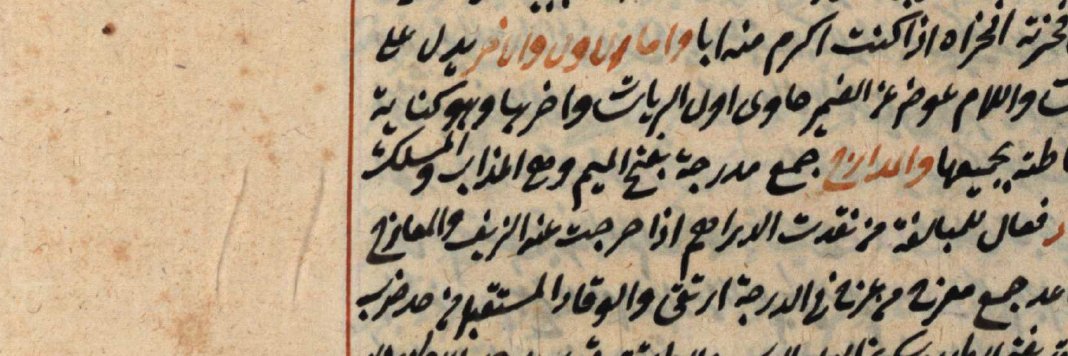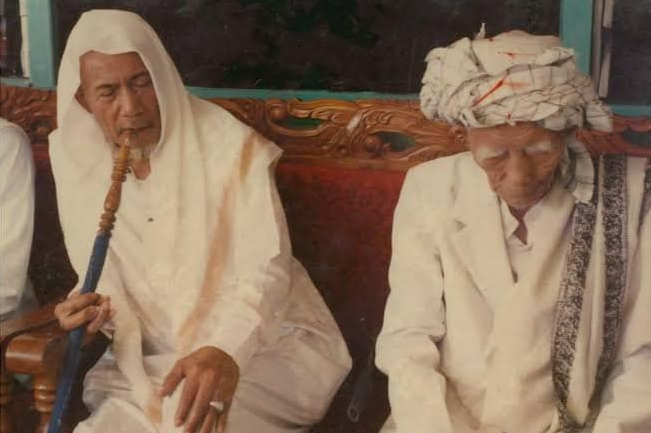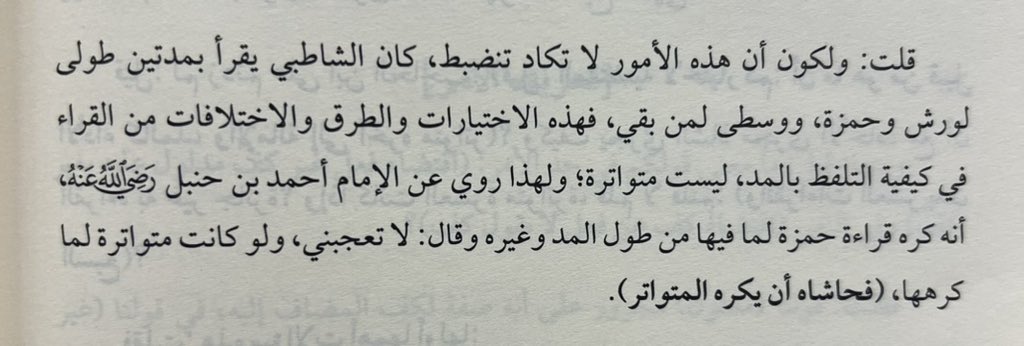
Ibn al-ʿAlāʾ
@fahd_ibn_ala
Student and Instructor of the Sacred Sciences | Interests: Poetry, Manuscripts, Ḥadīth Transmission, Legal Theories & Coffee
Sh. Yāsīn al-Fādānī (d. 1410) with Sh. Zayn al-Dīn al-Fānshūrī (d. 1418)

Someone just said: “You need to work with ḥikmah sometimes.” Okay. I guess working without ḥikmah most of the time includes dropping ḥikmah-free pointers on ḥikmah. This has to be the most misused Muslim word.
This tweet and the QTs show how Dubai trips and the Diaspora social experience warp your understanding of Muslim societies outside the West. I can’t even be mad at it because it’s like a hillbilly’s deep thoughts on New World Order. Just let the poor guy yap.
I think Islam as a religious force will collapse within 15 years everywhere but the West. A secular wave is going to hit the Islamic world the likes you've never seen. strict Islamism will become a European phenomenon.
The question should be if it’s polytheism? Anyways, permissibility (ibāḥah) imhv includes karāhah, so it can incorporate differing views. In the ʿIlal, it is related that Aḥmad was asked about touching the Prophet’s ﷺ grave with the intent to be close to God, and he said:…
Uncle bought a ticket to Makkah so he can save the Hujjaj from Shirk 🤦♂️
Uncle bought a ticket to Makkah so he can save the Hujjaj from Shirk 🤦♂️
At the Tütüncüler Köyö mosque and Islamic school in the mountainous region of Of, Trabzon (Turkey). The principal informed us that many years ago, students at this school would watch from the mountains for soldiers. They would hide their books as studying Arabic was a crime.



A Scholar of All Schools The Ḥanbalī master Ibn al-Mughalī (d. 828) not only memorized Ibn Mālik’s Tashīl and al-Qazwīnī’s Talkhīṣ, he also had texts of the four schools memorized. He memorized Ibn al-Sāʿātī’s Majmaʿ among Ḥanafī texts and al-Bārizī’s Tamyīz among Shāfiʿī…

The Collector of Pearls & Dazzling Stars al-Burhān al-Zurʿī (d. 741), the Ashʿarī student of Ibn Taymiyyah—who taught in his place whenever he was in prison¹—had two main likings: [i] Books and [ii] Turkish slave-girls. He learned and mastered Arabic from Muslim scholars, and…
![fahd_ibn_ala's tweet image. The Collector of Pearls & Dazzling Stars
al-Burhān al-Zurʿī (d. 741), the Ashʿarī student of Ibn Taymiyyah—who taught in his place whenever he was in prison¹—had two main likings: [i] Books and [ii] Turkish slave-girls.
He learned and mastered Arabic from Muslim scholars, and…](https://pbs.twimg.com/media/Gu3LtgUWcAATHck.jpg)
![fahd_ibn_ala's tweet image. The Collector of Pearls & Dazzling Stars
al-Burhān al-Zurʿī (d. 741), the Ashʿarī student of Ibn Taymiyyah—who taught in his place whenever he was in prison¹—had two main likings: [i] Books and [ii] Turkish slave-girls.
He learned and mastered Arabic from Muslim scholars, and…](https://pbs.twimg.com/media/Gu3LtgaXoAApp_b.jpg)
I had lunch today with Sh. Topçu. One of his students, who invited us, shared that he spent nearly two decades in prison for the crime of bringing al-Ājurrūmiyyah back to Turkey from Mecca. He did this by giving each traveler a page of the text to take back with them!

This couplet in Manṭiq al-Ṭayr is so beautifully composed: A master who, no matter what I say, was more than that (bīsh būd). In everything, of all others, he was ahead (pīsh būd).

Ibn al-Subkī (d. 771) notes how mode-choice (ikhtiyār), variant transmission (ṭarīq), and the numerous different ways to perform the madd can impact one’s perspective on its tawātur. He believes this explains Aḥmad’s distaste for Ḥamzah’s recitation.

This couplet (ramal metre) is found in many glosses of texts on Arabic syntax, even though it falls short of being a shāhid from all aspects—so it shouldn’t be there. It seems to be a post-classical Shīʿī hymn. The Mālikī master from Fez, ʿAbd Allāh al-ʿAyyāshī (d. 1090),…
Certainly in paradise there is a river of milk For Ali, Hussain and Hassan; The Ahl al-Bayt
His wife has passed away. Prayers requested.
A student of ḥadīth in Istanbul has experienced a house fire while his wife was at home, leaving the family in significant difficulty. Please pray for her recovery and their well-being in general.
Muḥammad Shafīʿ al-Aṣbahānī read the Biḥār al-Anwār to its author, al-Majlisī II (d. 1110), so much that he became known as “The Biḥār Reader.” He read most of it, but wasn’t able to finish it. The prevalent print of al-Biḥār has 110 volumes (with TOC). Some dedication!

🔥 Found Muḥarram Effendi’s (d. 1256) gloss on Sharḥ al-Jāmī. Dang, these guys are never gonna stop.

